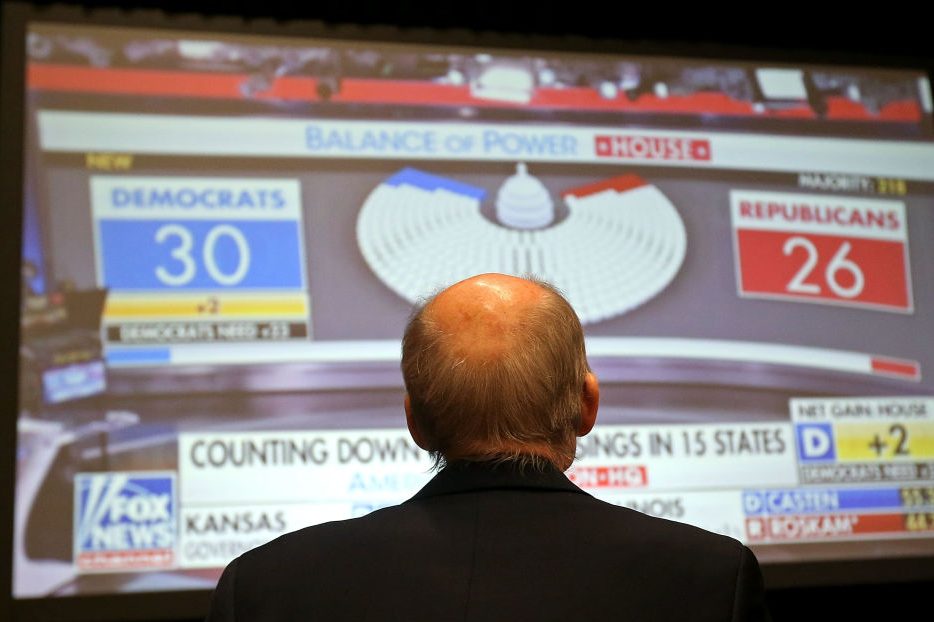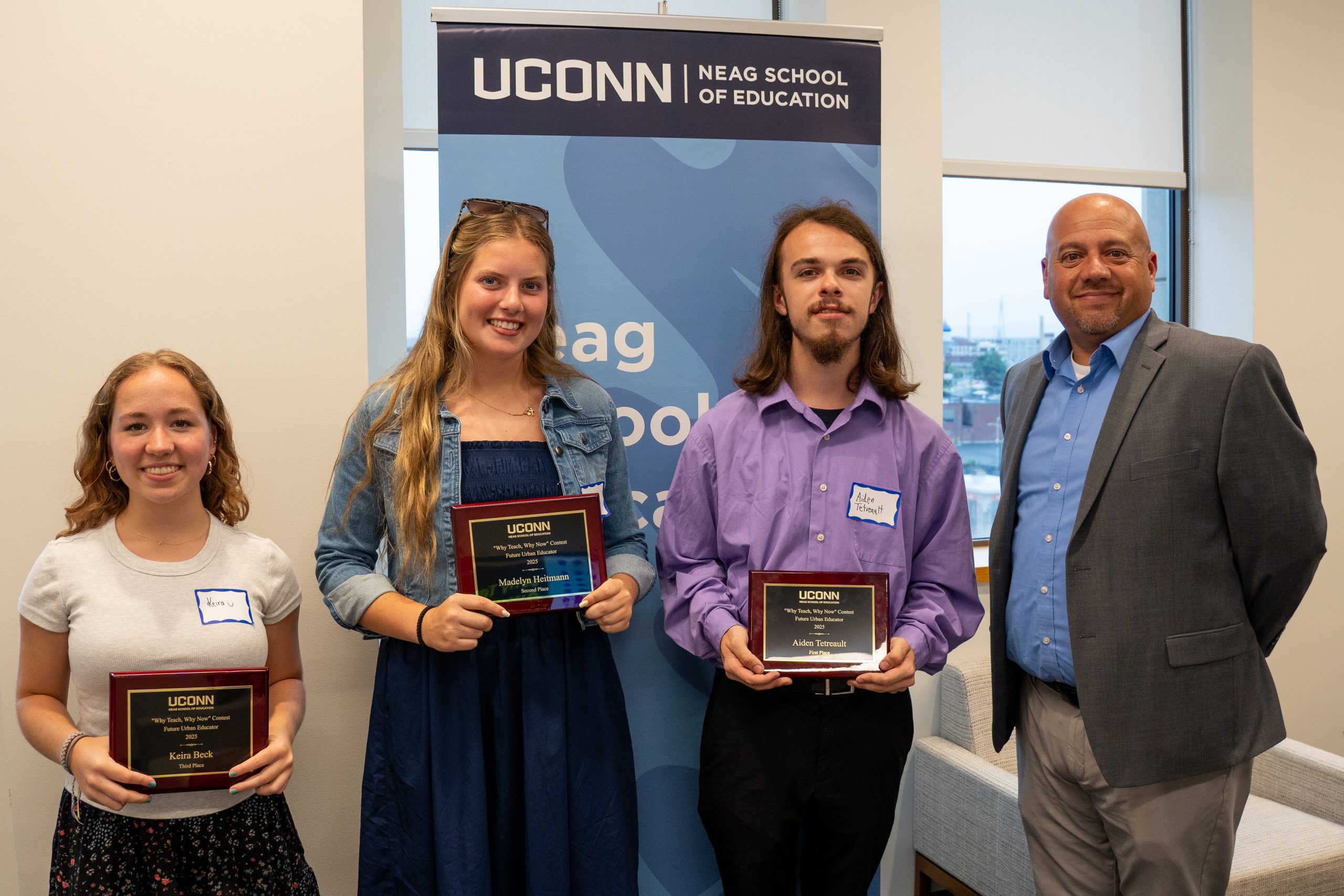The midterm elections featured an electorate that is polarized and unhappy, with the economy not playing as important a role as it usually does.
Health care and immigration were the key issues, along with President Donald Trump, and although there were national issues, regional predispositions played their usual important roles.
Those were a few of the takeaways from a forum yesterday at UConn, held less than 24 hours after the House of Representatives returned to Democratic control, the Senate remained with the Republicans, and here in Connecticut, Democrat Ned Lamont was elected governor.
Trump clearly was in the minds of voters around the country – no matter what their feelings about him are, said a panel of UConn political scientists.
People campaigned as friends or opponents of Donald Trump. There is something for everyone to be happy about and not happy about. — Ron Schurin
Early exit polling suggested that about two-thirds of the voters said their vote was about the president, according to Jennifer Dineen, associate professor of public policy and director of the graduate program in survey research.
“More of those voters said they came to show opposition rather than support for the president,” Dineen said. “Last time I checked, nearly 4 in 10 voters said their vote was meant as a sign of opposition to President Trump.”
The presence of Trump made this election more nationalized than those in recent history, added Paul Herrnson, professor of political science.
“Prior to 1994, there were very few nationalized elections – post-Watergate and the Great Depression – that’s really about it,” he said. “I would say the election was nationalized in some ways, but not a tidal wave.”
Trump’s emphasis on immigration might have helped the Republicans do well in the Senate, although that was not always going to be the issue the party emphasized in the final weeks before Election Day, according to Dineen. The party wanted to key in on the economy, but Trump insisted that immigration should be out front more.
“We saw immigration being a big part of the narrative leading up to the election, as the caravan in Central America has been making its way up” to the U.S. border, said Dineen.
… the biggest reason for possible change is the composition of the House of Representatives, which is changing to be more reflective of America. — Jennifer Dineen
Herrnson believes the 2016 election will be remembered as the “dawn of a new era” for women running for Congress.
“The percentage of women running has grown over the last few cycles, but took a jump in 2018,” he said. “Women comprised 24 percent of those trying to get elected to Congress among first-timers, meaning non-incumbents. When women run, women win.”
In Connecticut, the results were not positive for Republicans, noted Ron Schurin, associate professor of political science.
“They have lost their third close gubernatorial race, and each of the three times, they were leading all night long until the large cities and the ‘limousine liberal’ towns came in and turned it around,” Schurin said.
In 2008, the Connecticut Republicans were not leading in the General Assembly, but they gained year after year since, increasing their representation to tie their numbers with Democrats in the Senate in 2016, according to Schurin. “They thought they were going to cross the line in both this year, but it went in the opposite direction – and badly in the opposite direction.”
But, overall, he added, “people campaigned as friends or opponents of Donald Trump. There is something for everyone to be happy about and not happy about.”
What does the future look like?
“One of the things I find the most interesting, the most exciting, and really the biggest reason for possible change, is the composition of the House of Representatives, which is changing to be more reflective of America,” said Dineen. “It will have policy consequences, and also impact on voting coalitions for 2020 and beyond.”
The forum was moderated by Vin Moscardelli, assistant professor of political science.



